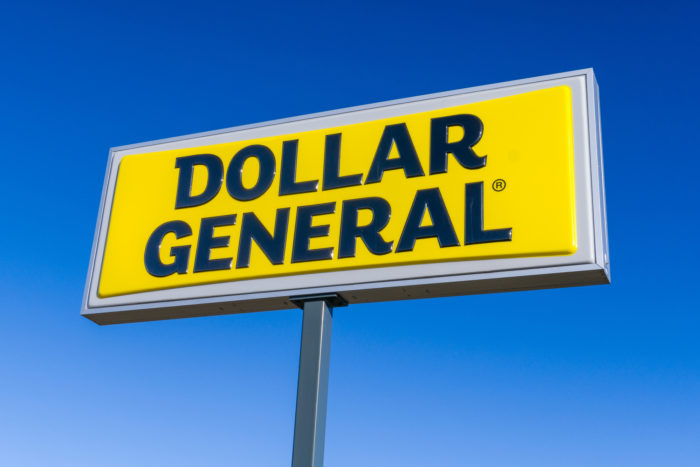
The states for which U.S. District Judge Gary A. Fenner authorized certification include California, Missouri, and Florida, along with 13 others.
According to Judge Fenner, consumers effectively satisfied statewide requirements, but there are differences in state laws that prevented a nationwide Class of Dollar General consumers from being certified.
Reportedly, consumers had shown proof that they paid for the motor oil purchases from Dollar General, and had provided evidence that the oil was obsolete — useless in modern cars.
However, Judge Fenner said that the consumers had not sufficiently shown that Dollar General had been “unjust” in selling this oil, per the varying definitions of “unjust” among states.
According to Judge Fenner, juries to determine the case would only need to know the laws of one state if only state Classes were certified, as opposed to learning the state laws of all of the states, if a nationwide Class were certified.
Judge Fenner states that the next step in the Dollar General class action lawsuit should be in remedying the unjust enrichment claim that Dollar General allegedly gained by selling useless motor oil to its customers.
Claiming that customers had been financially injured by Dollar General’s conduct, the consumers’ representative told Law360 that “If you ask any consumers whether they would willingly purchase obsolete motor oil they would say no. And yet Dollar General sold hundreds of thousands of units of this oil to unsuspecting consumers.”
Customers who bought the Dollar General brand motor oil in two varieties — DG SAE 10W-30 or DG 10W-40 for use in cars made after 1988 fall into the statewide Classes.
Additionally, consumers who bought DG SAE 30 motor oil since 2011 for cars made after 1930 also qualify under the statewide Classes.
Many Dollar General motor oil class action lawsuits were filed around the country, claiming that the discount retailer misled consumers into purchasing oil that could not be used in modern cars.
Allegedly, Dollar General did this by selling the old oil next to brand-name products, which made the old products look like off-brand versions of the new oil, and not something entirely different and unusable.
These motor oil class action lawsuits began pouring in during 2015, and were consolidated into a multidistrict litigation in 2016.
Allegedly, vendors alerted Dollar General that the motor oil was useless.
Consumers claim that the company knew the oil was useless and sold it anyway.
Dollar General says that they understood the oil couldn’t be used in most cars, but claim that they sold it for customers wishing to use it in lawn equipments, boats, and other equipment compatible with the oil.
The consumers are represented by Kenneth B. McClain, Kevin D. Stanley, Colin W. McClain, J’Nan C. Kimak, and Andrew K. Smith of Humphrey Farmington & McClaim PC and Allan Kanner and Cynthia St. Amant of Kanner & Whiteley LLC.
The Dollar General Motor Oil MDL is In re: Dollar General Corp. Motor Oil Marketing and Sales Practices Litigation, Case No. 4:16-md-02709, in the U.S. District Court for the Western District of Missouri.
ATTORNEY ADVERTISING
Top Class Actions is a Proud Member of the American Bar Association
LEGAL INFORMATION IS NOT LEGAL ADVICE
Top Class Actions Legal Statement
©2008 – 2024 Top Class Actions® LLC
Various Trademarks held by their respective owners
This website is not intended for viewing or usage by European Union citizens.















405 thoughts onDollar General Obsolete Motor Oil Class Action Lawsuit Certified
For most people their car is their second most expensive purchase. Why would you put Dollar General oil in it?
You play stupid games you win stupid prizes.
Add
This is why you check the API label not just the weight. Only an idiot would buy non-detergent 30w for a car, it’s only for lawnmowers and air compressors. And as for the SL or SJ, it actually won’t hurt any car that called for 10w30 or 10w40 when new, as neither of those have been called for since the late 80s/early 90s when 5w30 became standard. DG actually did nothing wrong here. People need to be responsible enough to check their label for the oil rating not just the viscosity.
Please add me I used it
Add me please
I m annette lyles this oil damage my 2001 S10 truck in 2015
Quite obviously if you are taking care of your car with dollar store oil you deserve what you get. I can by 5 quarts regular oil and filter for under $25 and 5 quarts and filter if full synthetic for $35. If that’s too steep then take the bus or replace your engine.
Was dumping this DG “motor oil” into my grandmas vehicle for the last 2 years, this last year it broke down & was junked due too expensive damage. And I mean really dumping this stuff in. (hole in oil pan, dumped new quarts in every week to keep filled, no joke)
I have used this oil many times. In multiple vehicles add me.
Most of their employees look like the walking dead who just got out of stir!!!